Great ICC event in London yesterday, ’Re-imagining the Future of Trade’ at Clifford Chance with more than 400 registered participants.
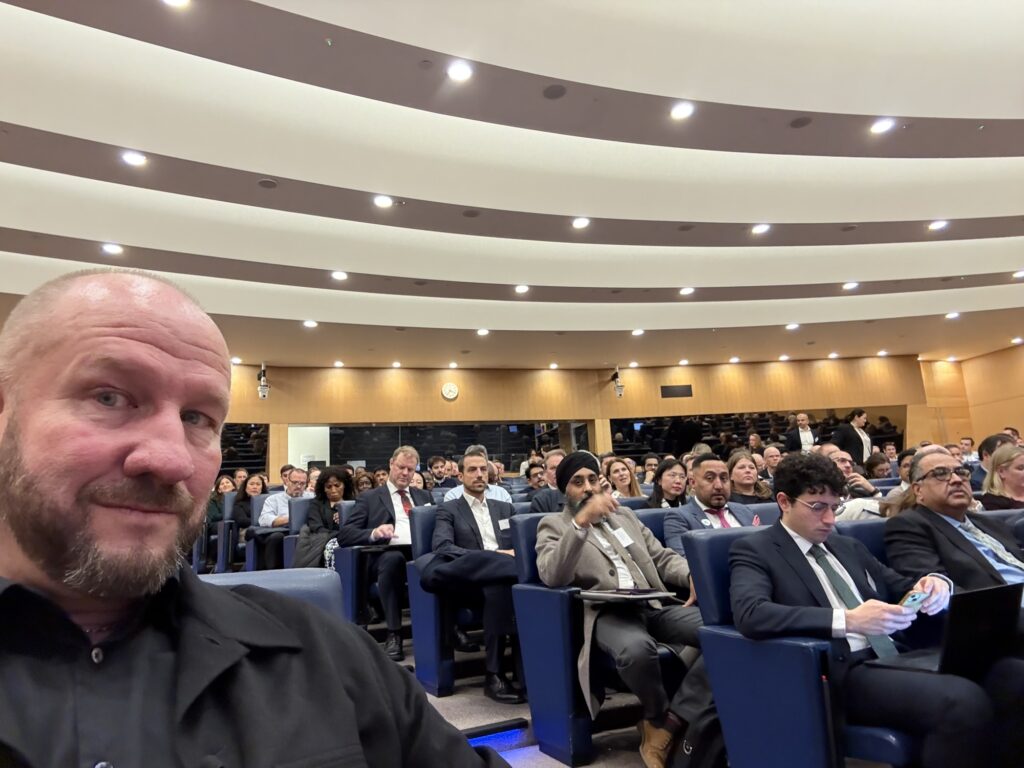
Lord Karan Bilimoria of Chelsea delivered an inspirational Key Note Speech.
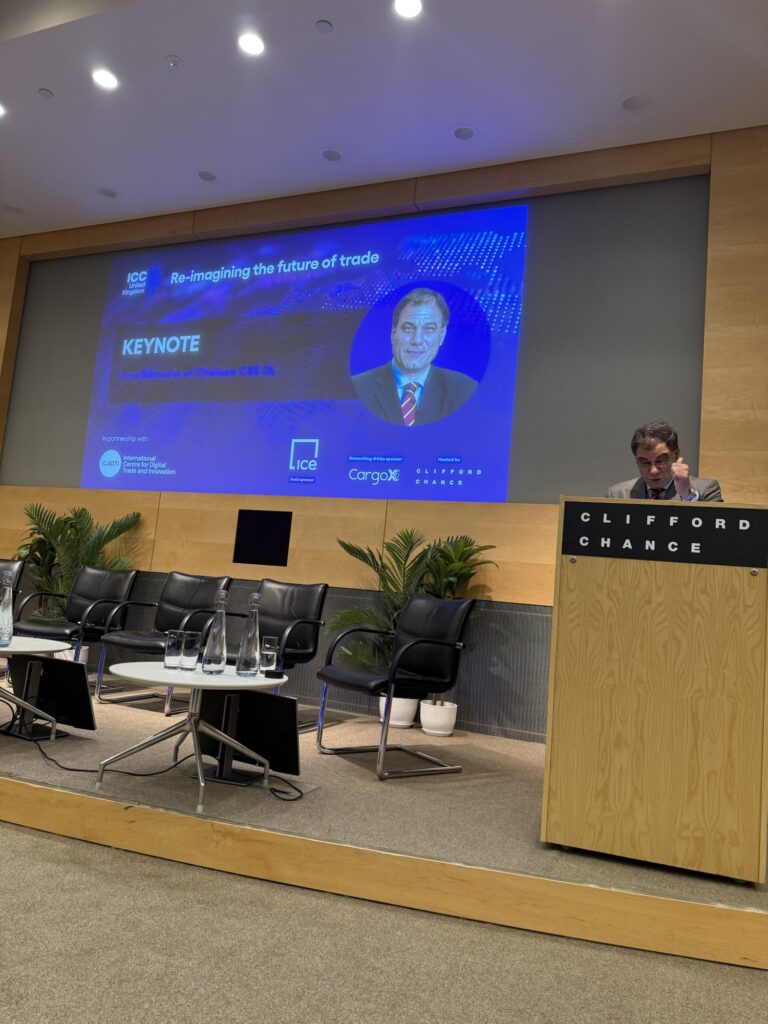
Chris Southworth moderated in an excellent way a panel where we had an dyanamic & constructive discussion about how to accelerate trade digitalization.

Great dialogue with superspeakers like Ayesha Ali Oswald Kuyler Vashti Maharaj & Rebecca Shepherd.



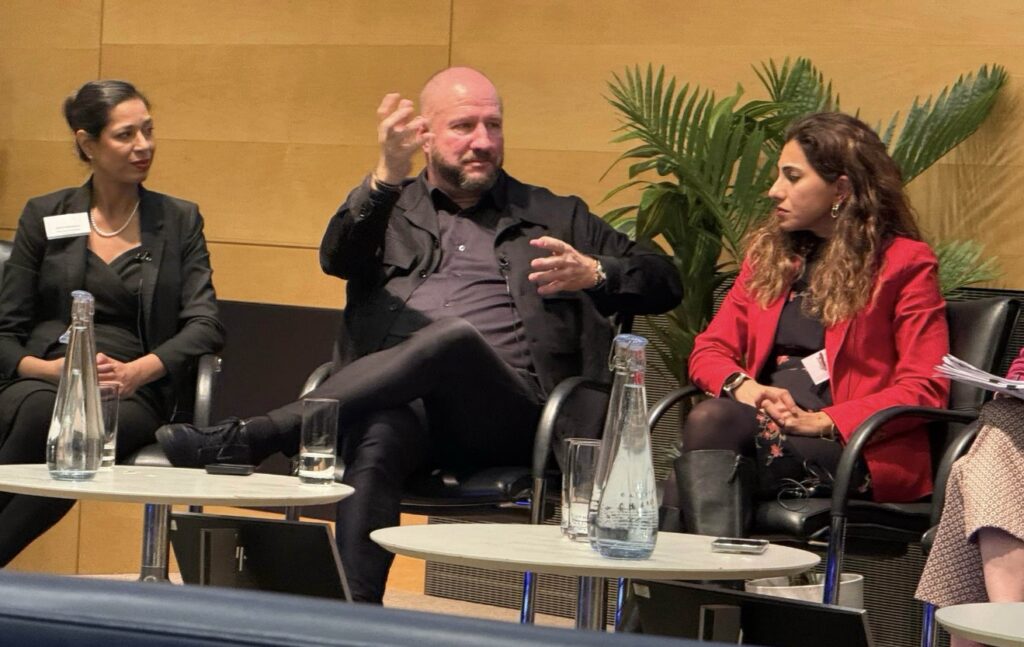
I made the points that:
🎯 We need to look at international trade not in silos but as a connected and interoperable ecosystem, where we instead of digitizing all paper documents from the legacy trade processes – use the datapipeline to foster intelligent data packages, trust badges, a digital passport for goods
🎯 We also need to evolve borders to digital smart border for more inclusive and fair smarter trade, maling it possible for all businesses, including MSMEs to grow, driving prosperity, and that…
🎯 Trade faciliation will release the values that will drive accelerated digitalization, as argued by the #TradeFacilitationCommission in a recent report, see below.
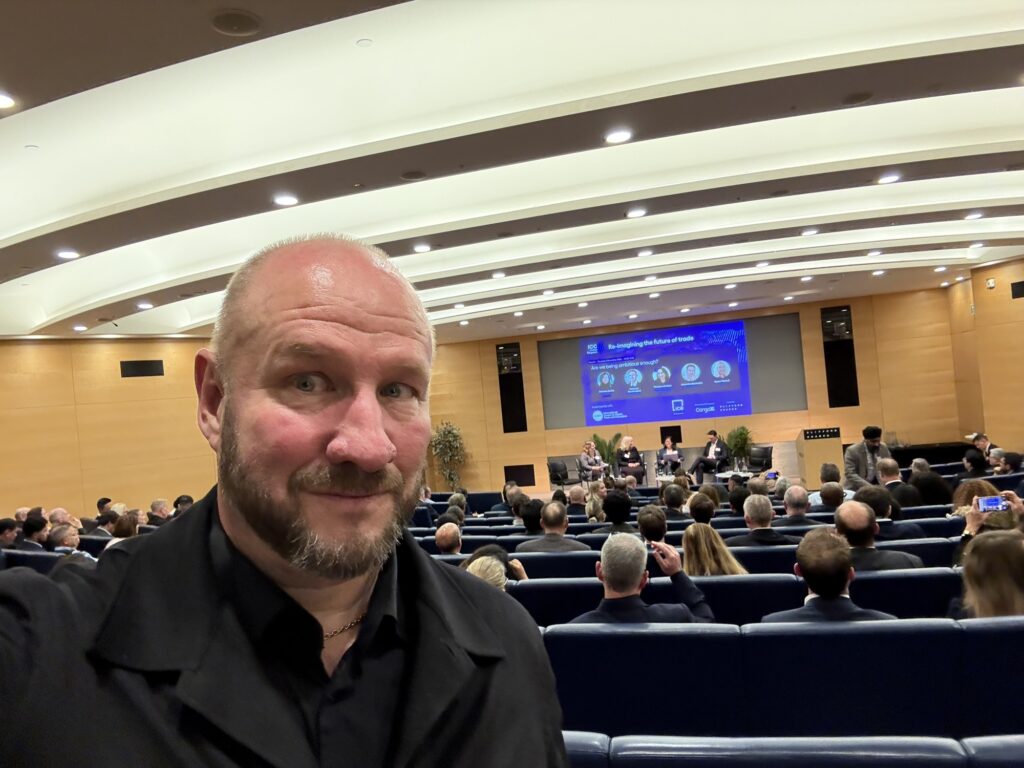
This execvelnt event was also the launch of the International Center for Digital Trade and Innovation (#iC4DTI) and the ’2024 Roadmap to Digitalise UK Trade’.
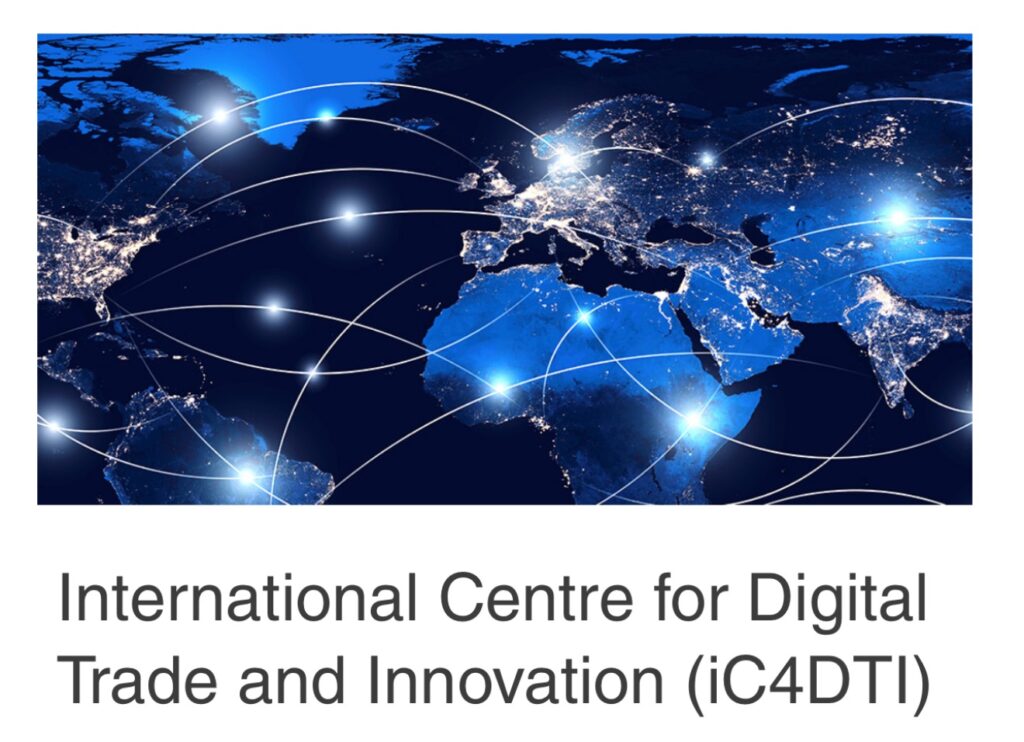
A most needed & timely initiative. Tale a look at the national roadmap – it is excellent. https://c4dti.uk/
How right wasn’t Mick Jones. London Calling, again and again.

The book, ’Don’t Believe Everything You Think’ by Joseph Nguyen offers a profound exploration of how our thoughts influence our emotions and behaviors, urging readers to challenge their mental patterns and cultivate a healthier, more peaceful mindset.
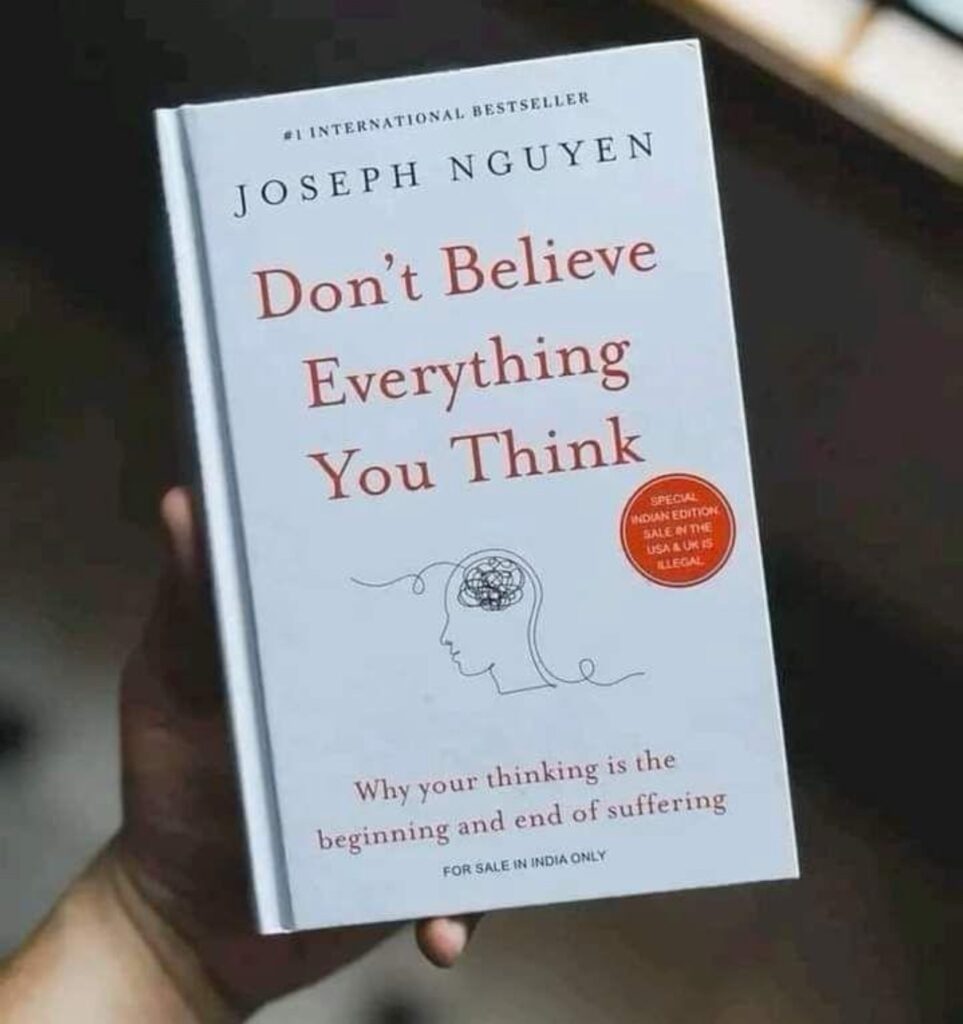
Here are 10 lessons from the book:
- Thoughts Are Not Facts: Nguyen emphasizes that our thoughts are not always accurate representations of reality. They are often biased, exaggerated, or influenced by our past experiences. Learning to separate ourselves from these thoughts is crucial for emotional well-being.
- Awareness is the First Step: The key to mastering your thoughts is awareness. By becoming mindful of your thoughts, you can begin to recognize patterns, especially those that are negative or unhelpful. Awareness allows you to choose which thoughts to engage with and which to dismiss.
- The Power of Letting Go: The book highlights the importance of letting go of unhelpful or repetitive thoughts. Holding on to negative thoughts can lead to unnecessary stress and anxiety. By practicing mindfulness and releasing these thoughts, you can find greater peace of mind.
- Challenging Negative Thinking: Negative thoughts often arise automatically, but Nguyen encourages readers to challenge them. Rather than simply accepting them as truths, ask whether these thoughts are based on facts or assumptions. This shift in perspective can reduce anxiety and self-doubt.
- Mindfulness as a Tool for Clarity: Mindfulness is a central theme in the book. By practicing mindfulness, you can observe your thoughts without judgment, allowing you to see them for what they are—just thoughts—not facts or truths that define you.
- The Stories We Tell Ourselves: Many of our thoughts are influenced by the stories we tell ourselves about who we are, our abilities, and our place in the world. These self-narratives can limit us, but by questioning them, we can rewrite these stories and free ourselves from self-imposed limitations.
- The Importance of Self-Compassion: Instead of beating yourself up for having negative thoughts, Nguyen emphasizes the importance of self-compassion. Being kind to yourself when negative thoughts arise helps to reduce their power over you and promotes mental resilience.
- The Habit of Overthinking: Nguyen points out that overthinking is a common issue that prevents people from acting or finding peace. By cultivating the habit of questioning the validity of your thoughts, you can avoid getting stuck in overthinking and make clearer decisions.
- Creating Space Between Stimulus and Response: One of the most powerful lessons is the idea that there is a space between the stimulus (the event or thought) and our response. By creating this space, we can choose how to respond, rather than reacting impulsively to our thoughts.
- Mental Freedom Comes from Non-Attachment: Nguyen advocates for non-attachment to thoughts. By not identifying with every thought or emotion, you can experience mental freedom. This detachment allows you to engage with your thoughts in a more objective way, without being controlled by them.
Don’t Believe Everything You Think is an empowering guide to understanding the nature of thoughts and their influence on our emotional state. By learning to question and release unhelpful thoughts, we can break free from mental habits that limit our potential and find greater peace and happiness.






You must be logged in to post a comment.